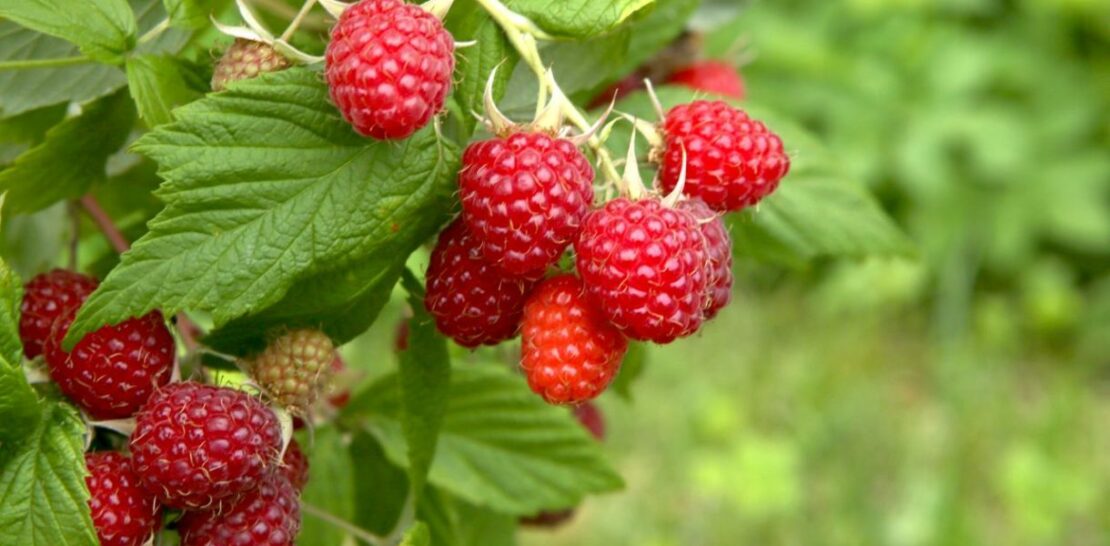As a specialist in the English language with an extensive understanding of the nuances and intricacies of the language, allow me to present to you an in-depth guide on raspberry bush care in July.
This comprehensive guide delves into the essential aspects of care and maintenance to ensure a fruitful and satisfying harvest.
With the right attention and dedication, you will witness a significant increase in the quality and quantity of raspberries from your garden.
So, without further ado, let’s dive into the world of raspberry bush care.
Understanding the Growth Cycle of Raspberry Bushes
To begin with, it is crucial to understand the growth cycle of raspberry bushes in order to provide appropriate care throughout the year, especially in July. Raspberries come in two main types: summer-bearing and everbearing (or fall-bearing) varieties. Each type has a unique growth cycle, which impacts the way they should be cared for in July.
- Summer-bearing raspberries: These plants produce a single crop of fruit in the summer, usually around June to July. The berries grow on canes called floricanes, which are two-year-old canes that have already produced leaves in their first year. In July, summer-bearing raspberries require specific care to ensure that they produce a bountiful harvest.
- Everbearing raspberries: Also known as fall-bearing raspberries, these plants can produce two crops per year – one in the summer and another in the fall. The first crop grows on floricanes, much like the summer-bearing variety, while the second crop grows on primocanes – first-year canes that have not yet produced leaves. With this variety, July is a critical month for care and maintenance to ensure a healthy and abundant harvest in the fall.
Maximizing Fruit Production Through Pruning
One of the most crucial aspects of raspberry bush care in July is pruning. Proper pruning not only encourages fruit production but also helps maintain the overall health of the plant. The following four key pruning techniques are essential to maximize your harvest:
- Removal of spent floricanes: Once the summer-bearing raspberries finish fruiting, it is vital to remove the spent floricanes. These canes will not produce fruit again and may become a source of diseases or pests if left unattended. Use clean, sharp pruning shears to cut the floricanes at ground level, and dispose of them away from your garden to prevent any potential spread of disease.
- Thinning primocanes: For everbearing raspberries, thinning the primocanes is crucial to ensure a bountiful fall harvest. In July, select the strongest and healthiest primocanes and remove any weak, damaged, or overcrowded canes. This process promotes better air circulation and light penetration, resulting in healthier plants and increased fruit production.
- Tip-pruning: For both summer-bearing and everbearing raspberries, tip-pruning can help encourage branching and increase fruit production. In July, trim the tips of new primocanes to a height of about 4-5 feet for summer-bearing varieties and 3-4 feet for everbearing varieties. This simple step stimulates the growth of lateral branches, which in turn, leads to more fruit-bearing canes.
- General maintenance pruning: Throughout the growing season, it is essential to keep an eye on your raspberry bushes for any signs of disease, pest infestation, or damage. Remove any affected canes immediately to prevent the spread of problems and maintain the overall health of your plants.
Providing Optimal Nutrition for Raspberry Bushes
Just like any other plant, raspberries require specific nutrients to thrive and produce a bountiful harvest. In July, you must pay close attention to the nutritional needs of your raspberry bushes to ensure their optimal health and fruit production. The following are three essential aspects of nutrition for raspberry bushes:
- Soil fertility and pH: Raspberries grow best in well-drained, fertile soil with a pH level between 5.5 and 6.5. It is crucial to conduct a soil test before planting raspberries to adjust the pH and nutrientlevels accordingly. If necessary, incorporate organic matter such as compost or well-rotted manure to improve soil fertility and structure. In July, it is a good idea to re-test the soil and make any necessary adjustments to ensure the continued health and productivity of your raspberry bushes.
- Fertilization: Proper fertilization is essential for optimal raspberry bush growth and fruit production. In general, raspberries require nitrogen, phosphorus, and potassium, as well as trace elements such as magnesium and calcium. For established raspberry plants, apply a balanced fertilizer (such as a 10-10-10 or 14-14-14 formula) in early spring and again in July, following the manufacturer’s recommendations for application rates. Be sure to water the plants thoroughly after fertilizing to help the nutrients reach the roots. Additionally, a layer of organic mulch, such as compost or well-rotted manure, can help maintain soil fertility and moisture levels throughout the growing season.
- Monitoring nutrient deficiencies: Observing the physical appearance of your raspberry bushes can help you identify any potential nutrient deficiencies. Common signs of nutrient deficiency include yellowing leaves, stunted growth, and poor fruit production. If you suspect a nutrient deficiency, consult a local gardening expert or agricultural extension service for advice on how to address the issue and restore the health of your plants.
Effective Pest and Disease Management for Raspberry Bushes
No guide to raspberry bush care in July would be complete without addressing the potential challenges posed by pests and diseases. A proactive approach to pest and disease management is essential to maintaining the health and productivity of your raspberry bushes. The following steps will help you protect your plants from common pests and diseases:
- Regular monitoring: Inspect your raspberry bushes regularly for any signs of pests or diseases. Keep an eye out for discolored or distorted leaves, small holes in the foliage, or the presence of insects on the plants. Early detection and intervention are critical to preventing the spread of problems and ensuring the health of your plants.
- Physical barriers: Installing physical barriers, such as bird netting or insect mesh, can help protect your raspberry bushes from common pests like birds and insects. Ensure that the barriers are well-secured and cover the entire plant to provide effective protection.
- Biological control: Encourage beneficial insects, such as ladybugs and lacewings, in your garden to help control pests naturally. Planting a variety of flowering plants, providing shelter, and avoiding the use of broad-spectrum insecticides can help attract and support these beneficial insects.
- Chemical control: If pests or diseases become a significant problem, chemical control measures may be necessary. Always choose the least toxic option, such as insecticidal soap or neem oil, and follow the manufacturer’s instructions for application rates and timing. Remember, chemical control measures should always be a last resort and used only when other methods have failed to provide adequate protection.
- Sanitation and cultural practices: Maintaining a clean and healthy garden environment is essential for preventing the spread of pests and diseases. Regularly remove any dead or diseased plant material, keep the area around your raspberry bushes free from weeds and debris, and practice crop rotation to minimize the buildup of soil-borne diseases.
In conclusion, raspberry bush care in July is a multifaceted process that involves understanding the growth cycle, pruning techniques, nutritional needs, and pest and disease management. By following the guidance provided in this comprehensive guide, you will be well-equipped to care for your raspberry bushes throughout the month of July, ultimately leading to a bountiful and satisfying harvest. Remember, the key to success lies in your dedication and attention to detail. With the right care, your raspberry bushes will reward you with an abundance of delicious, homegrown fruit for years to come.




